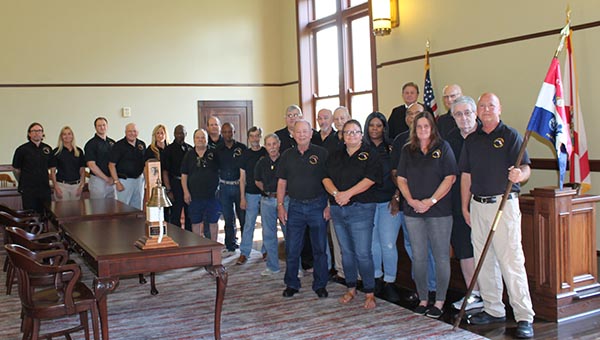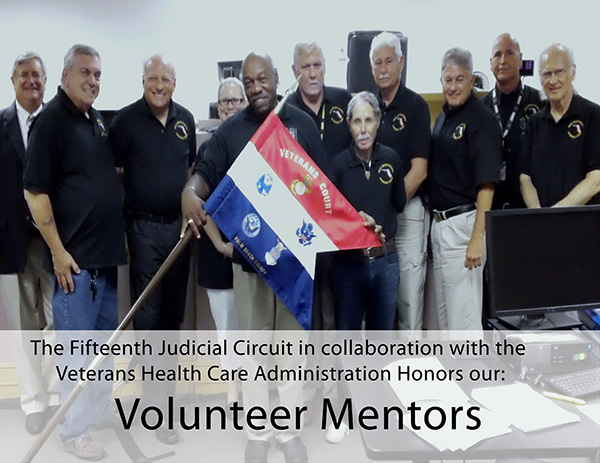Judge Ted Booras Veterans' Court
On November 11, 2010, Chief Judge Peter D. Blanc championed the creation of the Fifteenth Judicial Circuits’ Veterans Treatment Court, in partnership with Judge Ted Booras, a United States Marine Corps Veteran. This innovative specialty court was established through the collaboration of numerous stakeholders, including the Office of the State Attorney, Office of the Public Defender, the Clerk and Comptroller’s Office, Pride Probation, Department of Corrections, Veteran’s Association, Stand Down House, Vietnam Veterans of America, Law Enforcement and Court Administration.
For nearly Fifteen years, Judge Booras presided over Veterans Treatment Court with distinction, dedicating his service to helping justice-involved Veterans address the underlying issues that contributed to their involvement in the criminal justice system. His leadership and compassion profoundly changed the lives of countless Veterans, providing them with structure, accountability, and a pathway toward rehabilitation and stability.
As of January 2025, the Honorable Judge Darren Shull, also a United States Marine Corps Veteran, has assumed the role of presiding judge. Under his guidance, Veterans Treatment Court continues its vital mission of supporting those who served our nation. Court sessions are currently held every other Monday at 1pm, subject to the presiding judges’ schedule. Hearings take place at the Criminal Justice Complex, 3228 Gun Club Road, West Palm Beach.


| WPB Florida Veteran Treatment Court Manual |
